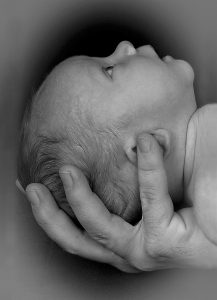“Few of us go through life without taking part in some kind of rite of passage.”
– Hank Nuwer –

It was the French ethnographer and folklorist, Arnold van Gennep, who first coined the phrase “rites of passage”. It is the ceremonial event that exists in all known historical societies that marks a person’s passage from one social or religious status to another – e.g. birth, puberty, marriage, etc.
Van Gennep distinguished the different kinds of rites of passage:
- Rites of Separation
One of the most prominent examples of this pre-liminal rite would be funerals. But it is also important to recognise the more subtle versions of this rite in our own everyday lives. A time of necessary endings when the world, as we have known it, is coming to an end. The reasons for this are numerous.
Over the last several years I have experienced an ideological shift that was more congruent to my personal values. However, this shift separated me from some of the ideas held as ’truth’ by a community I belonged to. It was a most difficult space, as fear often keeps us confined in places that we have actually shifted away from.
The separation stage calls us to leave behind an old way of life and perhaps an old way of thinking. It calls us to leave things or events or ideas and at times, people, behind. It asks us to let go and trust an unknown future.
- Liminal Rites
Liminal or transition rights are important in pregnancy or engagements. It is the place between two worlds: the one you left and the one you have not quite arrived at. It has also been referred to as a “threshold”.
I have found the metaphor of a trapeze artist most helpful to describe this stage. It is letting go of one trapeze bar yet having not taken hold of the one coming your way. You find yourself simply flying (or falling!) through the air … and hoping like mad that there will be something out there to meet you!
Symbolically, the liminal space is where you ‘shed your old skin’. It is a form of ‘seclusion’ – a place that often leaves us disorientated, vulnerable and feeling rather ‘naked’.
I have found this place to be one, where in the midst of turmoil, I have discovered my voice or language through the language of others. For example, it was Richard Rohr’s book Falling Upwards, and the skills and knowledge he shared about spirituality and transition from the first to the second half of life, that assisted me in finding words to describe this liminal space and hope for a different tomorrow.

- Rites of Incorporation
Incorporation rites are often highly developed, like in a marriage ceremony. This stage is a form of ‘home coming’ that completes the ritual passage. It is a time of celebration and communal acknowledgement that recognises a successful transition.
I have found this to be a place of celebrating the union of ideas and dreams with personal values, that in the first half of my life were not always compatible.
Rites of Passage have multi-layered meanings: social, psychological spiritual and/or religious. They help us recognise change. They also help us personally, and the family/community that we are part of, to assimilate this change.
Rites of Passage help to establish a sense of identity, and they mark personal growth and development. Perhaps it would beneficial to take some time to reflect on the Rites of Passage in our own lives (or maybe the lack of these rites)? How are these rites recognised in our families and or communities?
I have found the first to second half of life, as described by Rohr, a transformational journey. Other have shared their stories with me and we have found much common ground. Perhaps it is time to recognise this as a rather important Rite of Passage in our spiritual lives.
“When I was a child I spoke and thought and reasoned as a child does. But when I became a man my thoughts grew far beyond those of my childhood, and now I have put away the childish things.”
Paul’s letter to the Corinthians – 13:11 TLB

So wonderfully written Nicole! Honest, articulate and thought-provoking. You are inspirational! I pray that you find joy and deep fulfilment in your ‘different tomorrow’.
Thank you so much for your kind comment and encouragement, Melissa. May this year be filled with brand new adventures and much joy. xx